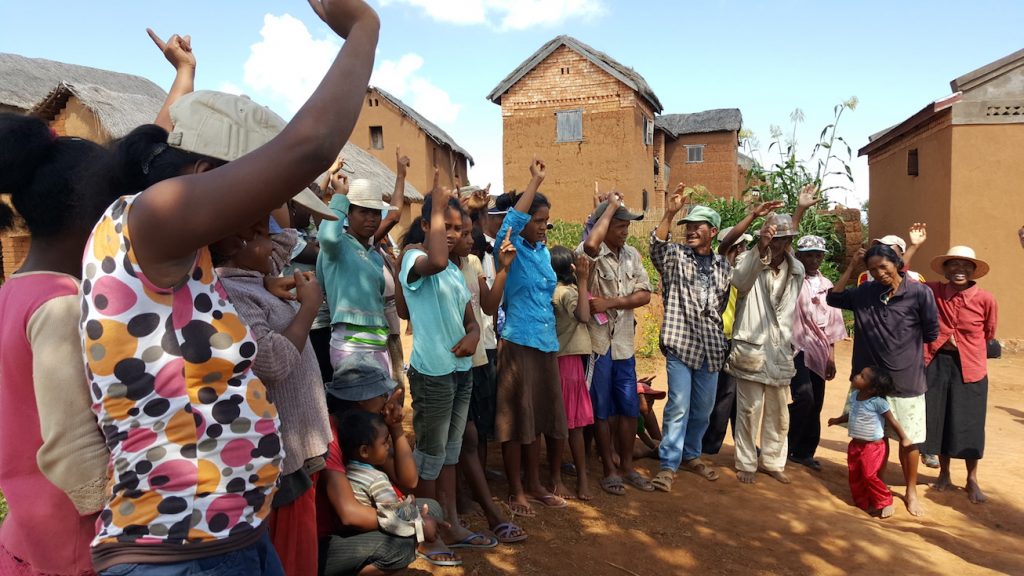
United in commitment to improve their toilets – Sanitation Ladder Triggering Itasy region – with Adema. Photo Credits: Kirsty Milward
CLTS Foundation was invited to the Global Learning Event of the Global Sanitation Fund, this year held in Madagascar to give an opportunity for GSF partners to learn from and contribute insights to the innovative and fast-growing work being achieved there by the Fonds D’Appui pour l’Assainissement, the GSF fund in Madagascar. Representatives from all 13 GSF partner countries attended the event, as well as countries with GSF projects currently in design phase.
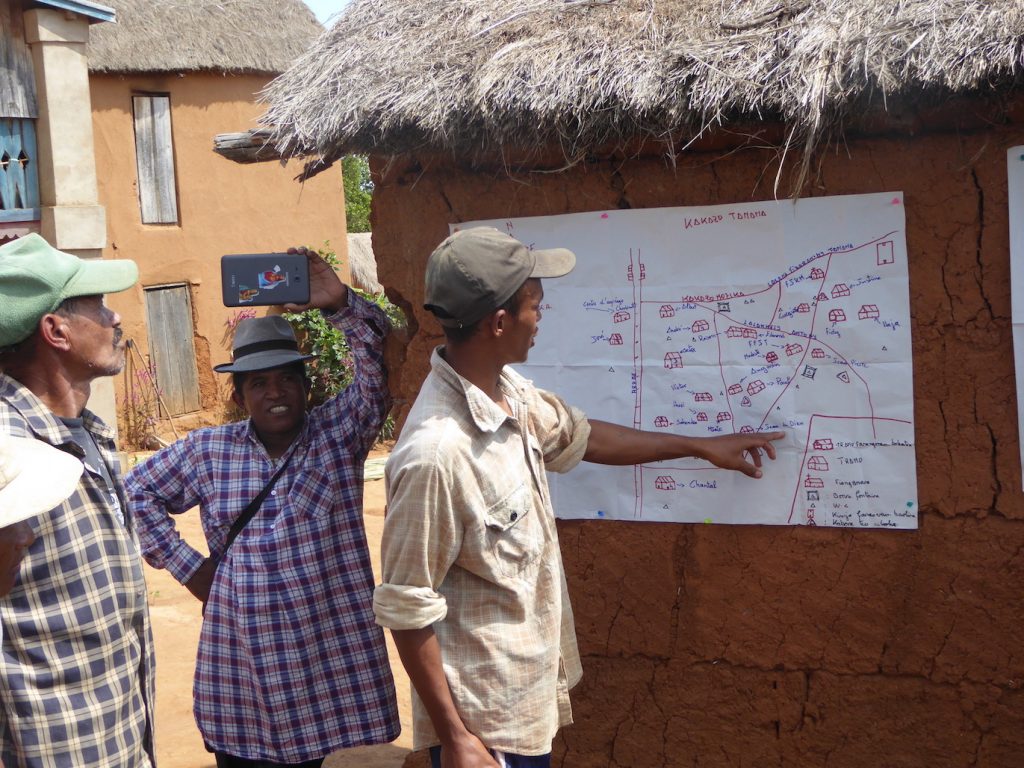
Sanitation Ladder triggering in Itasy with Adema NGO – the mayor filming the visitors observing the triggering. Photo Credit: Kirsty Milward
The event began with field visits by all participants to sites where sub-grantees have been implementing the programme, variously, in Vakinankaratra, Itasy and Analamanga regions of Madagascar. These visits were carefully crafted and tightly scheduled so that each group had opportunity to observe a number of key tools in action, including strategic village selection; Institutional Triggering; the triggering for scaling the Sanitation Ladder; and the FAA’s signature tool, Follow-up Mandona (FUM).
Core discussion themes in the subsequent days of workshop included: Role of GSF as a catalyst fund, involving a phase of demonstrating the effectiveness of the model, followed by transition to a non-GSF sustainability strategy; there were deliberations on methods for ODF verification and certification; Issues of quality and capacity; planning for scale and monitoring at scale; role of Sanitation Marketing; and issues of sustainability including how to understand and address slippage.
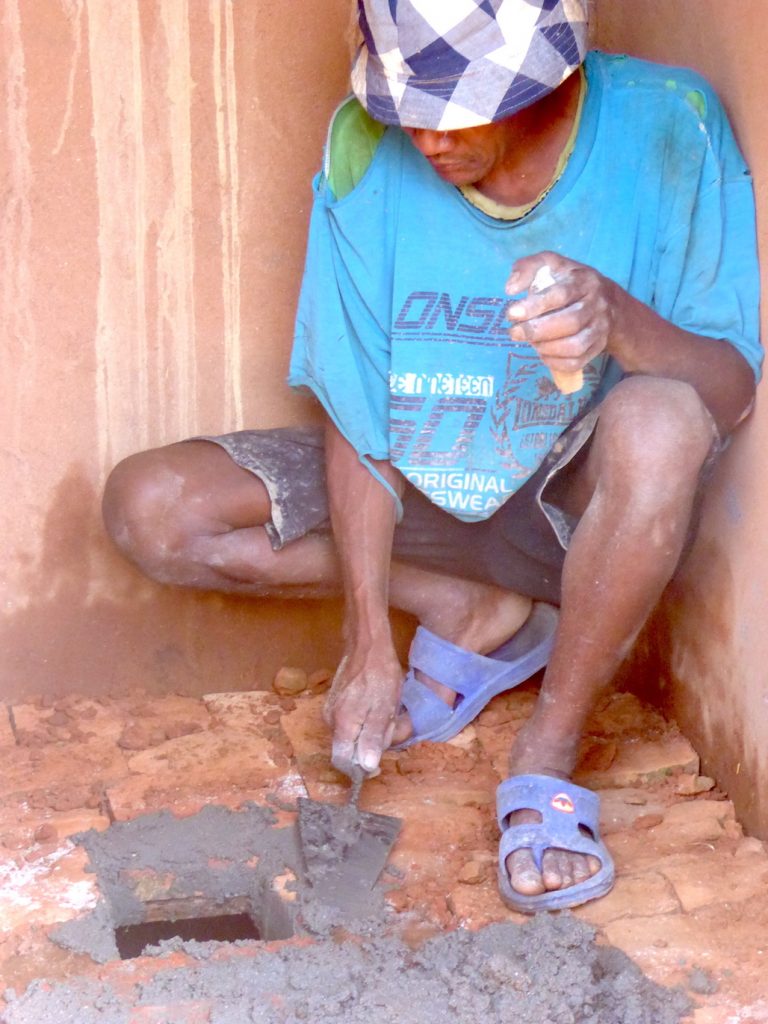
Participatory Technology Development – a Local technician improving a toilet. Photo Credit: Kirsty Milward
The discussion in the workshop was fruitful, drawing on the varied experiences of the 13 countries and the different stages of their implementation. Approaches to scaling up and monitoring tended to differ to some extent among countries implementing through government structures, though civil society organisations/NGOs, or though some hybrid version. There was also considerable variation across countries regarding approaches to sanitation marketing. A coherent set of summary lessons from the experiences brought to the table over the three days is being produced by GSF and will be available shortly.
By Kirsty Milward.

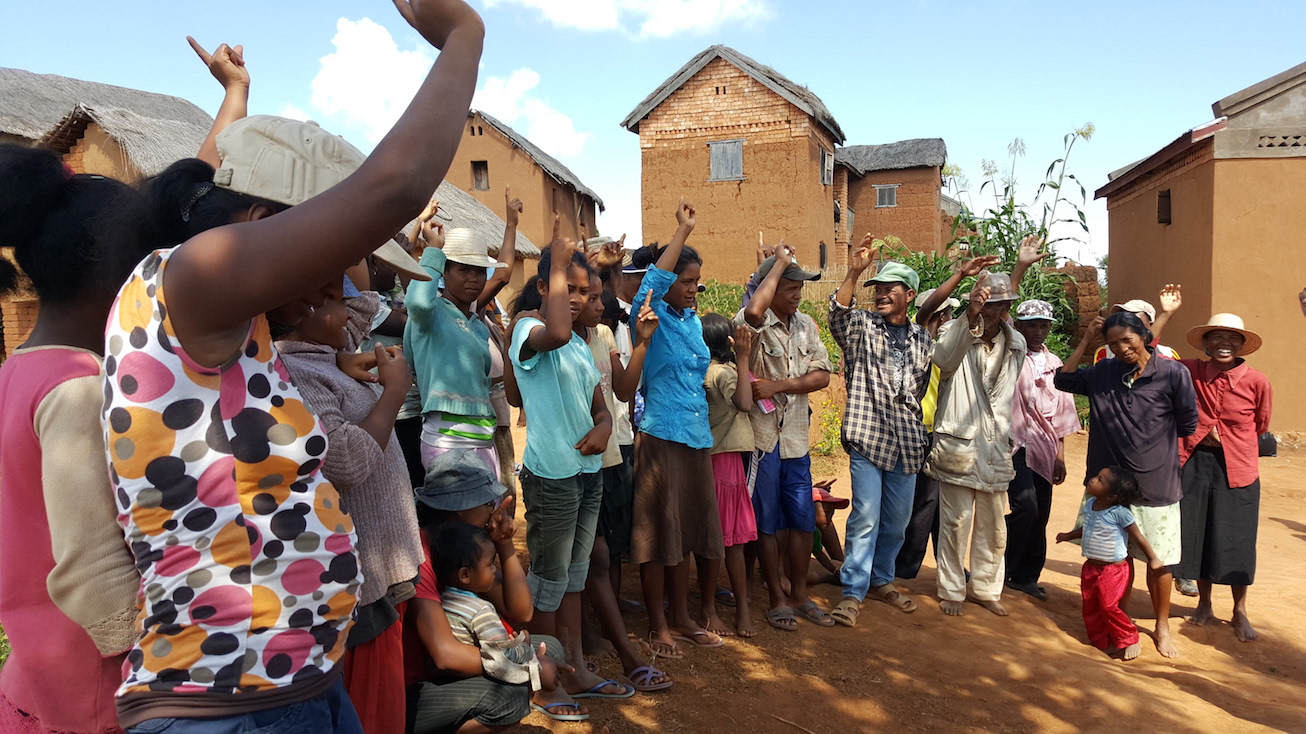
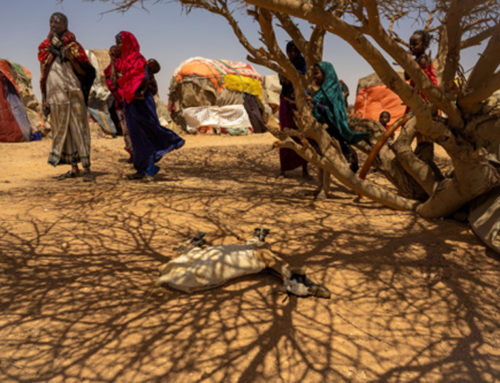
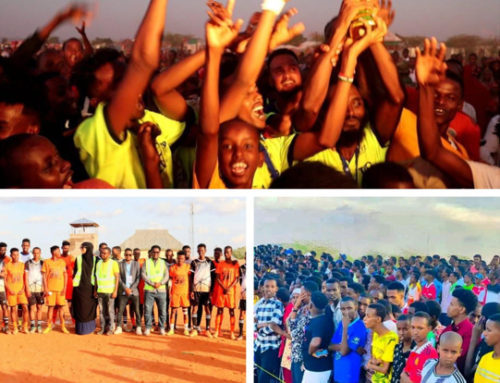
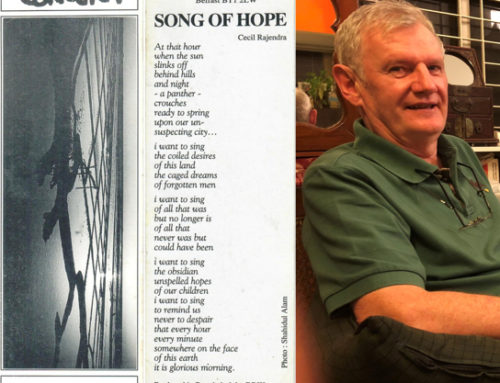
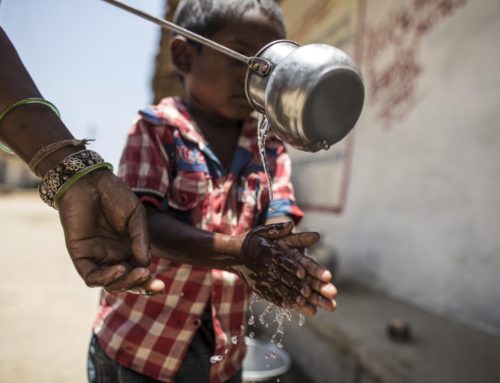
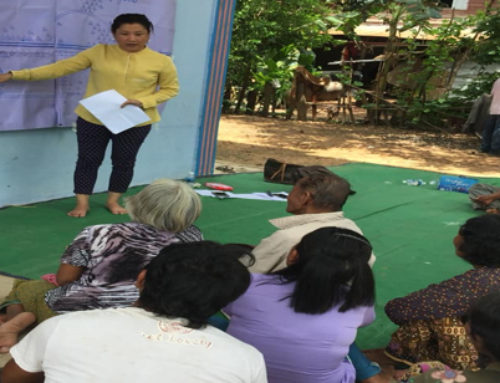
Leave A Comment